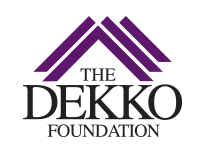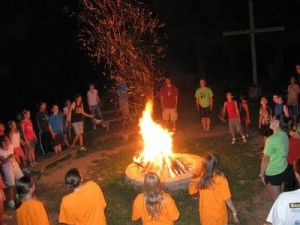Two big books and a little story
/1 Comment/in Uncategorized /by Sharon SmithAt the Dekko Foundation our ways of thinking have been changed by two big books and a little story.
The first book that’s impacted us is Toxic Charity, by Robert Lupton. It’s a quick read…maybe two hours start to finish. The reason we liked it so much is that a lot of Lupton’s beliefs match up with those of Mr. Dekko, our founder. Lupton states, “Giving to those in need, what they could be gaining from their own initiative may well be the kindest way to destroy people.” If you’re in the business of helping people help themselves, you’ll want to pick up Toxic Charity.
The Coming Jobs War is the second book on our minds. It was written by Jim Clifton, the CEO of Gallop (yes, the poll people). Clifton’s premise is that a global jobs war is coming. Leaders of countries and cities, Clifton says, should focus on creating good jobs because as good jobs go, so goes the fate of nations. Again, there’s a tie-in to our mission of fostering economic freedom through education. We’re helping people and organizations instill great skills, knowledge and character in young people. That way they’ll be ready to take on those new jobs and build strong communities.
Finally, there’s a little story that we return to again and again. We like it because it points out the difference, and the tension, between emotion-based charity and critical social change. It’s the ancient folktale of Babies in the River. You heard us…babies in the river! If you have a few minutes, search for the parable and read it to understand what we’re talking about.
Use our comment section to let us know what’s making YOU think!
Smart is the new black!
/2 Comments/in Uncategorized /by Sharon SmithBlack…it’s understated, perfect anywhere and never out of style!
Smart Grantseeking…it’s efficient, informative and uses time wisely.
We know that all funding organizations do things differently…so, we sympathize with you, Mr. or Ms. Grantseeker. Some foundations have deadlines and requirements for multiple copies. Others accept proposals anytime, but only online proposals.
We have something that we think might help…at least when applying to our foundation. Follow this link to our Grantseeker Support. There you’ll find things like Dekko Foundation 101 and a long list of FAQ’s. We’re hip, so we have video tips from our program officers. If you’re very new at this whole grantseeking thing, we even have a Glossary of Philanthropic Terms.
If you’re thinking of applying for a grant you might want to try on a distant cousin to the classic little black dress…it’s called the telephone…our program officers are available to chat with you about ideas for a grant proposal and answer any questions that you might have. 260-347-1278.
What is economic freedom, anyway?
/0 Comments/in Uncategorized /by Sharon SmithOur founder, Mr. Chet Dekko, was absolutely, positively, passionate about economic freedom. So much so that, with the fruits of his life’s work, he started a foundation to help future generations have the same access to economic freedom that he held dear.
So, what is economic freedom anyway?
We’re glad you asked. Here are some definitions that we think are spot-on…and inspirational as the dickens!
- Economic freedom means producing more than you consume.
- Economic freedom is the ultimate liberty to make choices about one’s own life.
What are the steps toward economic freedom? We think that:
- Economic freedom begins with education. Learning helps a person to build valuable skills and knowledge.
- Possessing skills and knowledge opens the door to opportunities.
- The more opportunities a person has, the more chances he or she has to be productive.
- When a person’s production outpaces consumption, then economic freedom appears.
So, how do these beliefs direct our work?
We invest in projects that help children and youth, up to age 18, build the skills, knowledge and character that they’ll need to travel the path toward economic freedom.
What is your definition of economic freedom? We’d love to know!
Helicopters can’t hover over camp!
/9 Comments/in Uncategorized /by Sharon SmithQuick! Name a memory from summer camp! Did you think about your cabin? S’mores around the campfire? The polar bear swim? What about saying goodbye to Mom and Dad?
At the Dekko Foundation we’re often asked to support summer camps. So we’ve been thinking a lot about camps and how they support children’s growth and development.
Pastor Mark Radloff, executive director of Indiana’s Lutheran Outdoor Ministries, gave us some interesting thoughts about what camps do for children. He told us that most children who go to camp want to swim, canoe or tell ghost stories around the fire. However, he believes that they gain much more than fun experiences. He says that they also gain a sense of adventure, self-regulation, leadership, risk management and social skills.
In Mark’s blog he writes, “The truth about building character is this: Maturation of social skills requires rejection; nurturing self-reliance requires loneliness; acquiring a sense of adventure requires fear; boosting self-esteem requires failure, learning emotional regulation requires loss; promoting unselfishness requires hardship, increasing kindness requires crowding and establishing secure attachment requires homesickness.”
As adults we SO want to protect our children that society has coined a term for that protection: helicopter parenting. In Mark’s words above though, it is so profoundly pointed out that, by not being rescued, children build many of the character traits that will help them through life.
Maybe one of the best things about camp is simply this: Helicopters can’t hover for an entire week!


